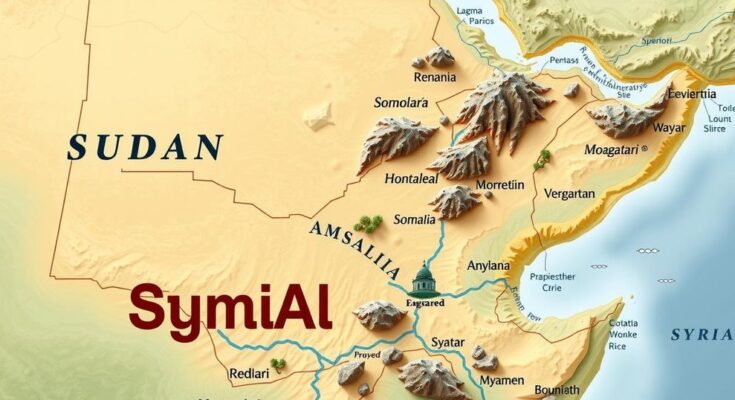The Trump administration and Israel are considering Sudan, Somalia, and Syria for resettling Palestinians from Gaza, aiming to address humanitarian needs amidst ongoing conflict. President Trump clarified there would be no expulsion of Palestinians, although his remarks have prompted increased Israeli outreach to neighboring countries. The international community has largely criticized these resettlement discussions, framing them as potential ethnic cleansing, while alternative solutions for Gaza’s reconstruction are being sought.
The Trump administration, alongside Israel, is reportedly exploring Sudan, Somalia, and Syria as potential countries for the resettlement of Palestinians from Gaza. This initiative is part of a broader strategy to address the humanitarian crisis in Gaza and conclude the ongoing conflict between Israel and Hamas. Sources suggest that the increasing interest in these nations aligns with an intent to rebuild Gaza post-conflict.
During a recent interaction, President Trump clarified, “Nobody is expelling any Palestinians,” addressing concerns regarding previous comments about Gaza’s reconstruction. He mentioned on February 4 that Gaza could be transformed into the “Riviera of the Middle East,” underscoring a vision of improved living conditions for its residents. His statements have reportedly galvanized Israeli officials to seek resettlement options in neighboring countries.
Sources indicate that communication has occurred between U.S. and Israeli officials and representatives from Sudan and Somalia to discuss resettlement possibilities. However, there has been no official confirmation from these governments regarding such dialogues. Additionally, the newly established Syrian interim government has been approached indirectly in these discussions, although the extent of Syria’s response remains unclear.
Dahir Hassan, Somalia’s ambassador to the U.S., denied any official engagement regarding Palestinian relocation, expressing concerns that misinformation could bolster extremist propaganda. Notably, the Sudanese authorities have not commented on recent inquiries regarding their involvement in resettlement plans.
The humanitarian conditions in Gaza have intensified, with over 90% of housing units reported damaged or destroyed. Since the onset of the current conflict, more than 48,000 Palestinian casualties have been reported. Multiple Arab nations and Democratic lawmakers have criticized the resettlement approach as potentially amounting to ethnic cleansing, advocating instead for alternative plans for Gaza’s reconstruction.
While the Trump administration has championed the idea of relocating Palestinians, the practicality and acceptance of such measures by the international community, including Arab nations, remain in question. Former U.S. officials expressed skepticism about outreach efforts to the new Syrian government and argued for the importance of direct engagement with them to pursue a stable resolution in the region amid ongoing diplomatic strains.
The reported efforts by the Trump administration and Israel to explore resettlement options for Palestinians in Sudan, Somalia, and Syria underscore a contentious approach to addressing the Gaza crisis. While this initiative aims to reshape the humanitarian landscape in Gaza, it has faced substantial criticism and skepticism from various stakeholders, raising significant ethical and diplomatic concerns about the implications of such actions. As the situation evolves, the response from regional governments and the global community will play a crucial role in shaping the future of Gaza and its residents.
Original Source: www.cbsnews.com




